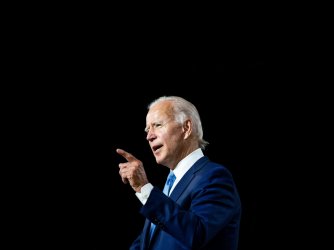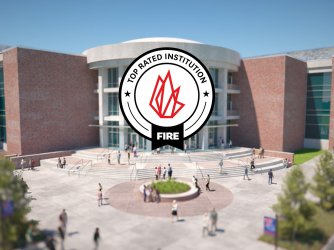Table of Contents
University of Minnesota Defends Ideological Screening for Ed Students; Academic Freedom Committee Meets Friday
MINNEAPOLIS, December 17, 2009—The University of Minnesota–Twin Cities is defending its plans to enforce a political litmus test for future teachers in the face of national outrage. The plans from its College of Education and Human Development (CEHD) involve redesigning admissions and the curriculum to enforce an ideology centered on a narrow view of "cultural competence." Those with the "wrong" views are to receive remedial re-education, be weeded out, or be denied admission altogether. After an anonymous source at the university contacted the Foundation for Individual Rights in Education (FIRE) for help, FIRE called on the university to end its plans, but the university has defended the program by publicly misrepresenting it.
"The University of Minnesota should be ashamed to pretend that these plans are only about helping future teachers learn about other cultures," FIRE President Greg Lukianoff said. "In reality, this program would scrutinize the thoughts, values, attitudes, and beliefs of prospective teachers and demand conformity or else require ‘remedial' re-education. By the plain language of the program, anyone who doesn't conform will be considered unqualified to be a teacher."
The proposal, from the college's Race, Culture, Class, and Gender Task Group, would require that each teacher recognize how minority students suffer from "white privilege, hegemonic masculinity, heteronormativity, and internalized oppression." Education students would be made to "discover their own privilege, oppression, or marginalization"; "develop a positive sense of racial/cultural identity"; and "recognize that schools are socially constructed systems that are susceptible to racism ... but are also critical sites for social and cultural transformation."
FIRE wrote University of Minnesota President Robert Bruininks on November 25 after it became clear that the task group's proposal was being implemented in month-by-month plans beginning immediately, as stated in a funding proposal to The Bush Foundation. The foundation is providing $4.5 million to implement the program.
In response to the controversy, CEHD Dean Jean Quam and university spokesman Dan Wolters have misled inquirers and defended the proposal as though it is merely a way to teach future educators about different cultures. In a brief response to FIRE's letter dated December 8, Bruininks failed to respond substantively to FIRE's concerns but instead referred the matter to legal counsel.
"This is a moral matter as well as a legal one," Lukianoff said. "This is a proposal that says teachers need a specific ideology to be considered qualified. It violates the autonomy and private conscience of faculty and students alike, and it rejects the very pluralism and diversity that the program claims to care about. Doesn't the university understand that great teachers come in all shapes and sizes and with a wide variety of political views and beliefs?"
The Supreme Court invalidated mandatory allegiances to political ideologies at public schools in the landmark 1943 decision West Virginia Board of Education v. Barnette. In that opinion, issued by the Court during World War II, Justice Robert Jackson wrote: "Freedom to differ is not limited to things that do not matter much. That would be a mere shadow of freedom. The test of its substance is the right to differ as to things that touch the heart of the existing order. If there is any fixed star in our constitutional constellation, it is that no official, high or petty, can prescribe what shall be orthodox in politics, nationalism, religion, or other matters of opinion or force citizens to confess by word or act their faith therein." The University of Minnesota's proposed program starkly violates these guiding principles.
The university's Academic Freedom and Tenure Committee met last week with Dean Quam and is scheduled to meet tomorrow with university counsel. Committee meetings are normally open to visitors. Friday's meeting is from 9:30 to 11:30 a.m. in 300 Morrill Hall on the Twin Cities campus.
"To learn about other cultures is one thing, but to say someone with the ‘wrong' political views should not be allowed to teach is unacceptable," said Adam Kissel, Director of FIRE's Individual Rights Defense Program. "We would defend the University of Minnesota professors who proposed this program if they were censored or punished for expressing their points of view, but they have gone too far by demanding that everyone in the program share their views."
FIRE is a nonprofit educational foundation that unites civil rights and civil liberties leaders, scholars, journalists, and public intellectuals from across the political and ideological spectrum on behalf of individual rights, due process, freedom of expression, academic freedom, and rights of conscience at our nation's colleges and universities. FIRE's efforts to preserve liberty on campuses across America can be viewed at www.thefire.org.
CONTACT:
Adam Kissel, Director, Individual Rights Defense Program, FIRE: 215-717-3473; adam@thefire.org
Robert Bruininks, President, University of Minnesota-Twin Cities: 612-626-1616; upres@umn.edu
Recent Articles
FIRE’s award-winning Newsdesk covers the free speech news you need to stay informed.

TikTok legislation sets grave precedent for free speech

FIRE joins animal advocates, free speech groups urging Ninth Circuit to affirm ruling that allows undercover audio recording

Louisiana Tech earns top rating for free speech
